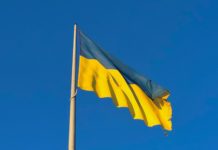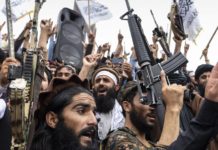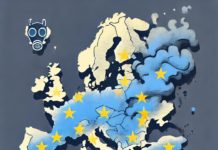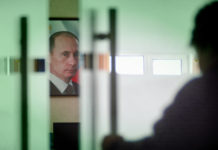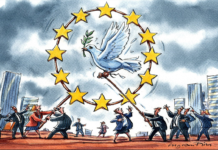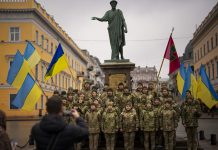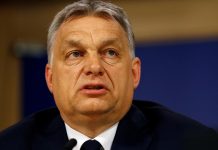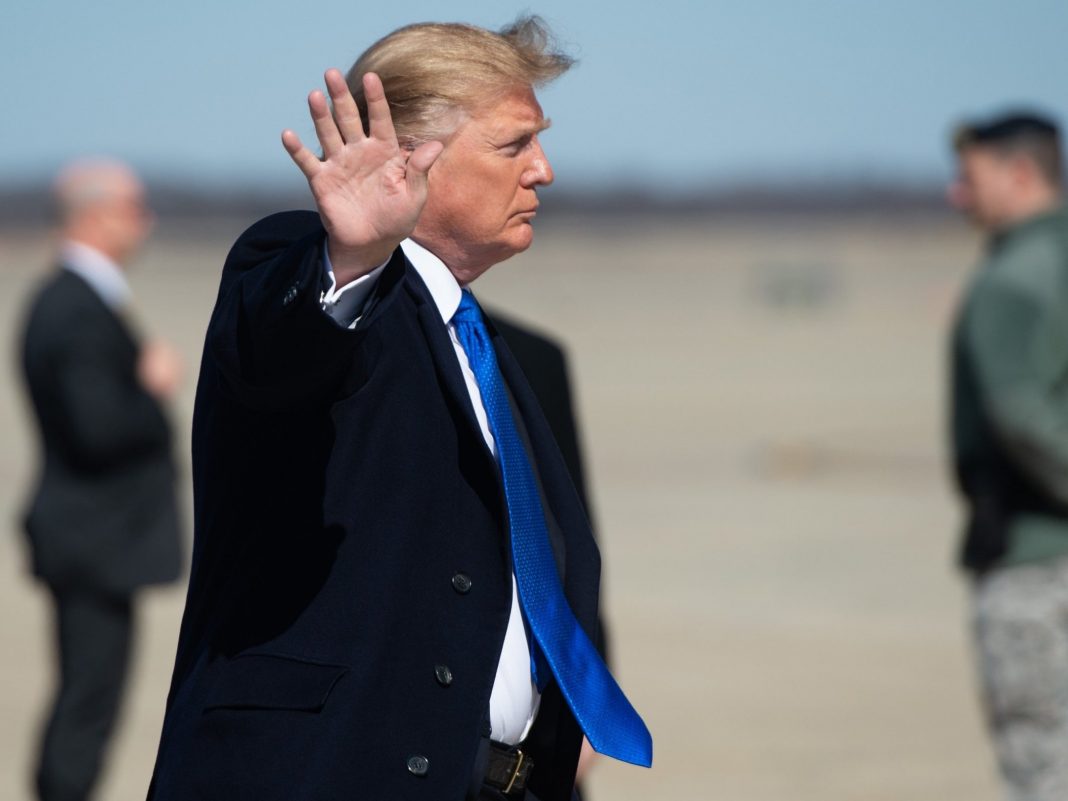Numerous Presidents across the American history have left their mark by delineating different directions in foreign policy substantiated in something called “doctrine”. With the Truman Doctrine designed in the incipient phase of the Cold War, President Harry S. Truman established that the United States would provide political, military and economic assistance to all democratic nations which might fall prey to endogenous and exogenous authoritarian forces. The Truman Doctrine effectively reoriented U.S. foreign policy away from its usual stance of withdrawal from regional conflicts not directly involving the United States, to one of possible intervention in far distant conflicts.
President Dwight D. Eisenhower announced his Doctrine in January 1957, publicly declaring that a country could request American economic assistance and/or aid from U.S. military forces should it be threatened by armed aggression from another state. Eisenhower singled out the Soviet threat in his doctrine by authorizing the commitment of U.S. forces “to secure and protect the territorial integrity and political independence of such nations, requesting such aid against overt armed aggression from any nation controlled by international communism.”[1] Something known as the Carter Doctrine emerged at the beginning of the 1980’s as a return to the Kennanite containment. In his speech, President Carter declared that the United States would employ military force against any country that attempted to gain control of the Persian Gulf region. That announcement represented a dramatic shift in U.S. foreign policy, which had been focused since the beginning of Carter’s presidency on promoting international human rights and on pursuing détente with the Soviet Union. Ronald Reagan and his administration’s active endeavours to topple the “The Evil Empire” came to bear the President’s name. Moreover, Bush Jr. set a “revolution” in the American foreign policy according to Ivo Daalder and James Lindsay, but not a revolution “in America’s goals abroad, but rather in how to achieve them.”[2] There is even a so-called “Obama Doctrine”[3], although the former President of the United States did not self-entitle his approach to foreign policy according to this paradigm set by his predecessors. What would be intellectually challenging is to assess, three years after Donald Trump had won the 2016’s elections, whether the contours of a possible “Trump Doctrine” are perceivable, especially in a context in which the President’s actions could be characterized anything else but “imprecise” and “discreet”. According to the New York Times’ opinion columnist Ross Douthat, Donald Trump’s attitude towards foreign affairs could be summarized as “a doctrine of disentanglement, retrenchment and realignment, in which the United States tries to abandon its most idealistic hopes and unrealistic military commitments, narrow its list of potential enemies and consolidate its attempts at influence”.[4] Nevertheless, since the issue of whether there is or not an authentic Obama legacy due to the limited timespan past since the end of his mandate is a matter of contention among scholars, the most prudent course of action concerning Donald Trump would be to analyze his political persona by comparison with his predecessors. A dichotomous inquiry thus ensues: is Trump a sui generis, never-encountered-before on the international arena phenomenon, or does he assemble disparate pieces of presidential reality inherent in the 20th century American history?
The election of Donald Trump could be interpreted as a thorn into the International Liberalist Order, mainly due to a pervasive emphasis on nationalism and state-centrism materialized under an “America First and only America First”[5] rhetoric. The fact that the American sovereignty is reduced to a penury of elements, among which economic and security interests are of primordial importance, seems to have been a reasons compelling enough for the American electorate in 2016 to opt for their current political option. Foreign policy has a transactional nature, being deprived of any regard for international norms and institutions by a President who is not a ”man of ideas, and certainly not an idealist or an ideologue, but a pragmatic technocrat who approaches policy issues on a case-by-case basis very much like a business transaction”[6]. Nevertheless, as Henry Kissinger said, ”for whenever America has faced the task of constructing a new world order, it has returned in one way or another to Woodrow Wilson’s precepts”[7], therefore Trump’s approach cannot be possibly in stark opposition to Wilson’s legacy. However, values and ideals seem to be only fading forms of Wilsonianism, which do not necessarily reflect at first glance Trump’s understanding of the world. Multilateralism and a particular attention paid to legalism represent two liberal internationalist pivots that have been gradually denounced by the President when retreating the United States from treaties which were considered important advancements on the international arena – The Trans-Pacific Partnership, the Paris Agreement, the Joint Comprehensive Plan of Action, the Intermediate-range Nuclear Forces Treaty (INF). “Stylistically, the Trump doctrine is spare, unsentimental, and confrontational—almost ostentatiously so.”[8]
The manner in which Donald Trump regards the American foreign policy has been under close academic and journalistic scrutiny. The plurality of views vary from some authors who believe that the US foreign policy is contingent on the mood and narrow-sighted worldview of a President regarded as a chaotic and incoherent mess[9]. Others believe him to have a coherent, realist foreign policy[10], whilst others find this to be a nonsensical suggestion[11]. Some authors also argue that his foreign policy marks a return to the 19thcentury mentality of conducting foreign policy[12]. Donald Trump’s political behavior can be also interpreted in Frommian socio-psychoanalytic categories, seen as the Id of American politics, often driven by sheer aggression, narcissism, and, rage.[13] Notoriously, Trump exhibits the most gigantic and unrestrained Ego yet seen in U.S. politics, constantly trumping his wealth, his success in business, how smart he is, how women and all the people who work for him love him so much, and how his book The Art of the Deal (1987/2005) is the greatest book ever written.[14] Indeed, there cannot be any universal truth applied to a complex issue such as the American foreign policy, especially in a post-truth era. That is to say, there is always going to be some continuity as well as discontinuity with certain aspects of foreign policy, irrespective of ideological differences to presidential predecessors.[15]
No previous American President has had an intact reputation. Each one of them has been harshly criticized, both fairly and unfairly, for how he served the American interest domestically and internationally. As a matter of fact, three Presidents were impeached – Andrew Johnson in 1869, Richard Nixon in 1974 and Bill Clinton in 1998. Nixon’s obstruction of justice, abuse of power and contempt of Congress charges[16], stemming mainly from the Watergate scandal, resulted in the President’s departure from office. However, some historians do not associate Trump with Reagan or Franklin Delano Roosevelt, but with controversial figures in the American history, such as James Buchanan, Franklin Pierce or William Harrison[17]. Last year, a poll of nearly 200 political science scholars, who have routinely placed Republicans higher than Democrats, ranked him 44th out of the 44 men who have occupied the post.[18] In spite of the fact that the President has continuously associated him image with Abraham Lincoln’s [19] – who is considered to be the greatest leader of the United States of all time – this survey confronted his view with reality. Even the conservative scholars, who identified themselves as Republicans, placed him 40th. Historically speaking, indeed, his administration has been like no other[20], characterized by some unprecedented moves and abrasive manners of understanding the international arena. According to a Brookings survey, President Trump’s “A Team” turnover is 66% as of April 8, 2019[21]. He has a reputation for cabinet dismissals; he already changed two secretaries of state, two secretaries of defence, two attorneys general, three White House chiefs of staff, and a number of senior West Wing aides.
Perhaps the most pervasive element which describes how Trump conducts foreign policy is his personal understanding over the concept of digital diplomacy. Also referred to as Digiplomacy and eDiplomacy, it has been defined as the use of the Internet and new information communication technologies to help achieve diplomatic objectives[22]. However, Donald Trump applies a personalized definition, exacerbating the use and enlarging the scope of how technology should consolidate traditional diplomacy. On the average day, how many times Trump tweets adds up to as many as 11 or 12 posts.[23] The very first tweet sent by now President Trump was in May 2009. He was self-promoting his appearance on The Late Show with David Letterman: “Be sure to tune in and watch Donald Trump on Late Night with David Letterman as he presents the Top Ten List tonight!”[24]That was just about nine years ago. Since then, he has posted a total of 37,600 tweets, according to his Twitter profile, which amounts to about 4,178 per year[25]. Most of the time, his tweets lack substance and authentic ideas that should come to the benefit of the American people, although, in certain, notable instances, he made use of this social platform with a view to announcing important decisions affecting the American Foreign Policy.
There are countless scandals aggregating around his public image, varying from sexual misconduct to homophobia, racism, disregard for the women’s role in society, inappropriate remarks etc. Similar controversies have been present, more or less, also during the predecessors’ mandates, the only difference being their frequency. Although he claims to expose one of the highest forms of moral leadership, even conservatives have criticized his presidency for being a profile of amorality, whether in response to the murder of the Saudi journalist Jamal Khashoggi or the neo-Nazi torchlight protest in Charlottesville. Indeed, he might find an erudite justification in Niccolò Machiavelli, who has argued that the nature of political life requires a willingness to demonstrate habits of character that would ordinarily be understood as vices.[26] Even modern philosophers, such as Michael Walzer, supports the view that in an imperfect world, if a politician lies, cheats or does wrong in the name of doing good, there is sometimes a moral explanation that could compensate for an apparent lack of morality[27].
However, a human being cannot be reduced to a number of traits that result in predictable behavioral patterns. A leader, especially one holding the presidency of one of the most influential countries in the world, is not inherently good or bad. Therefore, the Trump administration can also take pride in a number of successful policies abroad which consolidates on the work of his predecessors in a positive tone. Indeed, an achievement of the Trump’s administration has been the denuclearization negotiations that have been brought to a new level, especially after 2017, at a time when the relationship between the two leaders was characterized by “fire and fury”.[28] No American President managed to come up with a diplomatic solution for an issue that has persisted since Harry Truman, who attempted at negotiating a peaceful Korean Armistice Agreement. Face-to-face discussions, taking place within the framework of traditional diplomacy, is undoubtedly a positive development, which has started during the Clinton administration, with Madeleine Albright’s visit in North Korea and continued disruptively during the Bush Jr. and Obama administrations. However, the two summits that have already taken place – in Singapore and Hanoi – are not expected to push the North on denuclearization, according to experts[29], especially in wake of Singapore Declaration, considered to have been written in imprecise terms. While Pyongyang has not tested any missiles since late 2017, it has yet to dismantle all nuclear sites and facilities, and in the absence of a tight deadline imposed by Washington, it will not do this.
In what regards the American – Sino relations, since Richard Nixon, who initiated and cemented the bilateral liaisons, the relations between the two countries have been described by diplomatic and economic ups and downs. The U.S. – China struggle for domination has much deeper roots in something which can be described in Huntingtonian terms as a “clash of civilizations.” The two countries have diverging visions of how the world should be like. The new U.S. National Security Strategy released in December 2017 characterizes the U.S.-China struggle as “a geopolitical competition between free and repressive visions of world order…” It also labels China as a “revisionist power.” [30] In the United States’ perspective, China’s aim is to change the existing international order. China’s President Xi Jinping has fed such fears by explicitly recognizing this fundamental divergence of cultural and ideological world views and encouraging a rejection of Western influence and implicitly of Western civilizational models[31]. Moreover, ”primele gesturi facute de president elect a fost punerea sub semnul întrebării a echilibrului strategic SUA-China”[32]. Analysis facts from this perspective, the current trade war between the two countries paradoxically seems justified. Until this moment, the US has already imposed tariffs on US$250 billion worth of Chinese products, and has threatened tariffs on US$267 billion more.[33] China, for its part, has set tariffs on US$110 billion worth of US goods, and is threatening qualitative measures that would affect US businesses operating in China.[34]
What stands as a unique feature of how Donald Trump consolidates on both formal, bilateral and also personal relations regards his publicly declared support and admiration for authoritarian leaders. Many appear to see the Trump presidency as an opportunity to engage with a like-minded leader due to his aggressive emphasis on nationalist aims. Others can continue to infringe human rights without repercussions – the Jamal Khashoggi case being only one of the many instances when Donald Trump chose to turn a blind eye to abuses of power. Vladimir Putin and Kim Jong-Un successfully manage to further their national aims in a new geopolitical order set by the United States. The Philippine president, Rodrigo Duterte, was one of the first leaders to have congratulated Trump on his election victory, and the President does not hide his personal admiration towards how the drug issue is being radically approached in the Philippine. The nationalists from the other side of the Atlantic, where his anti-immigration messages resonate in a context of refugees crisis and numerous waves of economic migrants, have publicly endorsed his actions. Hungary’s prime minister, Viktor Orban, has welcomed Mr. Trump’s victory, as have far-right leaders such as Marine Le Pen in France.[35]
In her latest book “Fascism: A Warning”, Madeleine Albright, the former Secretary of State during the Clinton administration, chooses to associate Donald Trump with all these leaders whose conduct reflect fascist proclivities. The historian Timothy Garton Ash, writing in The Guardian, called the Trump presidency “a new era of nationalism” in which “the nationalists are giving one another the Trumpian thumbs-up across the seas.”[36] However, the President’s personal propensity towards authoritarian leaders around the globe will not result in a global realignment in which the United States is more inclined to dictatorships rather than Western democracies. An overzealous President will always be retrained by something that in political science’s terms is called “checks and balances”, therefore although the President’s powers are well entrenched in a presidential regime, they will be managed by a variety of legal and political mechanisms. It is still premature to discuss about the broader effects of Trump’s conduct of foreign policy. Nevertheless, a number of patterns are easily perceivable: the North Atlantic alliance is continuously weakened, despite of the fact that many countries supplemented their financial contributions, Romania including[37]. At the same time, one constant Trumpian feature is his decision to reverse any progress that the previous administration made with regard to the Middle East, or to exacerbate the inherent geopolitical tensions by moving the American embassy from Tel Aviv to Jerusalem. This pattern is furthermore illustrated by continued U.S. support for the highly destructive Saudi and Emirati interventions in Yemen, which last year expanded with an assault on the port of Hodeida[38]. Many observers in the US and the Middle East have interpreted[39] the new Iraq strategy as a way for Trump and his foreign policy team (namely, National Security Adviser John Bolton and Secretary of State Mike Pompeo) to either try to foment regime change in, or take military action against, Iran. To make such a policy credible and to deter other US adversaries, Trump wants the US military to be unrivalled in the world.
In
a vocabulary connected with foreign policy, the overall effect that Trump’s
approach might have on America’s place in the world involves a return, to a
certain degree, to isolationism[40]. However, if in the
American history this school of thought was adopted willingly, nowadays is rather
the outcome of a specific approach. States, whether friend or foe, will be less
willing to bargain with the United States when it is governed by an
administration that reneges on previous agreements and that, other governments
believe, bargains in bad faith.[41]
Endnotes
[1] Office of the Historian, The Eisenhower Doctrine, 1957 [section on the official website], retrieved from https://history.state.gov/milestones/1953-1960/eisenhower-doctrine, accessed April 4, 2019.
[2] Ivo Daalder and James M. Lindsay, America Unbound: The Bush Revolution in Foreign Policy (The Brookings Institution: Washington, D.C., 2003), p. 3.
[3] Jeffrey Goldberg, “The Obama Doctrine, The U.S. president talks through his hardest decisions about America’s role in the world”, in The Atlantic, April 2016 Issue, retrieved from https://www.theatlantic.com/magazine/archive/2016/04/the-obama-doctrine/471525/, accessed April 4, 2019.
[4] Ross Douthat, “The Trump Doctrine – A chaotic administration’s unexpectedly coherent grand strategy”, in The New York Times (January 29, 2019), retrieved from https://www.nytimes.com/2019/01/29/opinion/trump-doctrine-venezuela-afghanistan.html, accessed April 4, 2019.
[5] Trump: America first and only America first , CNN, retrieved from https://www.youtube.com/watch?v=dIaoZqMrbCo, accessed April 4, 2019.
[6] Leon Hadar, ”The Limits of Trump’s Transactional Foreign Policy” in The National Interest, (January 2, 2017), retrieved from https://nationalinterest.org/feature/the-limits-trumps-transactional-foreign-policy-18898, accessed April 4, 2019.
[7] Henry A. Kissinger, Diplomacy, (Simon & Schuster: Rockefeller Center, 1994), p. 54.
[8] Shadi Hamid, “Deconstructing Trump’s Foreign Policy”, in Brookings, (November 5, 2018), retrieved from https://www.brookings.edu/blog/order-from-chaos/2018/11/05/deconstructing-trumps-foreign-policy/, accessed April 5, 2019.
[9] Michael Wolff, Fire and Fury: Inside the Trump White House, (London: Little Brown, 2018), p. 67.
[10] Rosa Brooks,”Donald Trump has a coherent, realist foreign policy”, in Foreign Policy, (April 12, 2016), retrieved from https://foreignpolicy.com/2016/04/12/donald-trump-has-a-coherent-realist-foreign-policy/, accessed April 5, 2019.
[11] Paul Pillar,”How Trump is Reshaping American Foreign Policy”, National Interest (June 21, 2018), available at http://nationalinterest.org/blog/paul-pillar/how-trump-reshaping-american-foreign-policy-26370, accessed April 5, 2019.
[12] Thomas Wright, “Trump’s 19th century foreign policy”, Politico (January 20, 2016), retrieved from https://www.politico.com/magazine/story/2016/01/donald-trump-foreign-policy-213546, accessed April 5, 2019.
[13] Douglas Kellner, ”Donald Trump as Authoritarian Populist: A Frommian Analysis”, In: Morelock, J. (ed.) Critical Theory and Authoritarian Populism. Pp. 71–82. London: University of Westminster Press, p. 71.
[14] For Freud, the Id represents the irrational and aggres-sive components of the personality, while the Ego represents the rational self which can suffer, however, narcissistic tendencies that undercut its rationality.
[15] Andrew Dryhurst, ”Crisis or Continuation? The Trump Administration and Liberal Internationalism”, on E-international relations students, retrieved from https://www.e-ir.info/2019/03/20/crisis-or-continuation-the-trump-administration-and-liberal-internationalism/, accessed April 5, 2019.
[16] Watergate.info, Articles of Impeachment [section on the official website], retrieved from http://watergate.info/impeachment/articles-of-impeachment, accessed April 5, 2019.
[17] Nick Bryant, ”How will history judge President Trump?”, in BBC News, New York, retrieved from https://www.bbc.com/news/world-us-canada-46895634, accessed April 5, 2019.
[18] Mike Murphy, ”Trump debuts in last place in political scientists” in Quartz, retrieved from https://qz.com/1210855/presidents-day-2018-donald-trump-debuts-in-last-place-in-political-scientists-presidential-greatness-rankings/, accessed April 5, 2019.
[19] Trump compares himself to Abe Lincoln. He’s dead wrong , on CNN, retrieved rom https://www.youtube.com/watch?v=6n-ltuLEadM, accessed April 5, 2019.
[20] Nick Bryant, ”How will history judge President Trump?”.
[21] Kathryn Dunn Tenpas, ”Tracking turnover in the Trump” in Brookings, retrieved from administrationhttps://www.brookings.edu/research/tracking-turnover-in-the-trump-administration/, (April 2019), accessed April 5, 2019.
[22] Fergus Hanson, “A Digital DFAT: Joining the 21st century”, (Lowy Institute. Archived from the original on 2012-03-22, November 2012).
[23] Amanda Wills and Alysha Love, ”All the President’s tweets” in CNN (April, 2019), retrieved from https://edition.cnn.com/interactive/2017/politics/trump-tweets/, accessed April April 8, 2019.
[24] Avery Hartmans, ”Donald Trump’s first-ever Tweet was a plug for ‘Late Night with David Letterman”, (May 12, 2017), retrieved from https://www.businessinsider.com/donald-trump-first-tweet-2017-5, accessed April 8, 2019.
[25] The Trump Twitter Archive, retrieved from http://www.trumptwitterarchive.com/archive/none/ttff/1-20-2017_1-19-2018, accessed April 8, 2019.
[26] Niccolò, Machiavelli and David Wootton, The prince, (Indianapolis: Hackett Pub. Co., 1995), p. 17.
[27] Michael Walzer, ”Political Action: The Problem of Dirty Hands”, in Philosophy & Public Affairs, Vol. 2, No. 2 (Winter, 1973), pp. 160-180, retrieved from https://www.jstor.org/stable/2265139?seq=1#page_scan_tab_contents, accessed April 8, 2019.
[28]Demetri Sevastopulo https://www.ft.com/content/ed3d00f6-3969-11e9-b72b-2c7f526ca5d0
[29]Nyshka Chandran, ”Another Trump-Kim summit may be good for diplomacy, but will do little for denuclearization” in CNBC (January 20, 2019), retrieved from https://www.cnbc.com/2019/01/18/a-second-trump-kim-summit–will-be-good-for-diplomacy-but-not-so-much-for-denuclearization.html.
[30] Mark J. Valencia, ”China-US Relations: What’s Next?”in The Diplomat (October 5, 2018), retrieved from https://thediplomat.com/2018/10/china-us-relations-whats-next/, accessed April 10, 2019.
[31] Idem
[32] Dan Pavel, ” How american elections impacted the world” in Războaie neterminate în era Facebook,
[33]Dorcas Wong and Alexander Chipman Koty, ”The US-China Trade War: A Timeline” in China Briefing (daily updated), retrieved from https://www.china-briefing.com/news/the-us-china-trade-war-a-timeline/, accessed Apri 10, 2019.
[34] Idem
[35] Rod Nordland, ”Authoritarian Leaders Greet Trump as One of Their Own”in The New York Times, February 1, 2017, retrieved from https://www.nytimes.com/2017/02/01/world/asia/donald-trump-vladimir-putin-rodrigo-dutert-kim-jong-un.html, accessed April 11, 2019.
[36] Timothy Garton Ash, ”Under President Trump, we’ll enter an age of global confrontation”, The Guardian (January 21, 2017), retrieved from https://www.theguardian.com/commentisfree/2017/jan/21/president-trump-age-global-confrontation-nationalist-china, accessed April 12, 2019.
[37]Ministerul Apărării Naționale, România, pe primul loc in NATO la alocări bugetare pentru înzestrare [section on the official webpage], retrieved from https://www.mapn.ro/cpresa/15842_Romania,-pe-primul-loc-in-NATO-la-alocari-bugetare-pentru-inzestrare_html, accessed April 13, 2019.
[38] Mohammed Ghobari, Mohamed Mokhashef, ”Arab states launch biggest assault of Yemen war with attack on main port”, Reuters (June 12, 2018), retrieved from https://www.reuters.com/article/us-yemen-security/arab-states-launch-biggest-assault-of-yemen-war-with-attack-on-main-port-idUSKBN1J90BA, accessed April 14, 2019.
[39] Gregory Aftandilian, ”Trump’s mixed messages on the Middle East”, Al Jazeera, (Febr 7, 2019), retrieved from https://www.aljazeera.com/indepth/opinion/trump-mixed-messages-middle-east-190207090621940.html, accessed April 13, 2019.
[40] Paul Pillar,”How Trump is Reshaping American Foreign Policy”, National Interest (June 21, 2018), available at http://nationalinterest.org/blog/paul-pillar/how-trump-reshaping-american-foreign-policy-26370, accessed April 5, 2019.
[41] Idem




